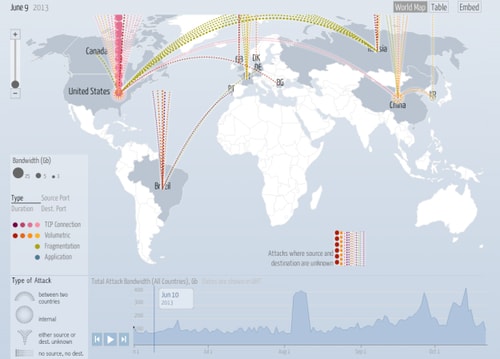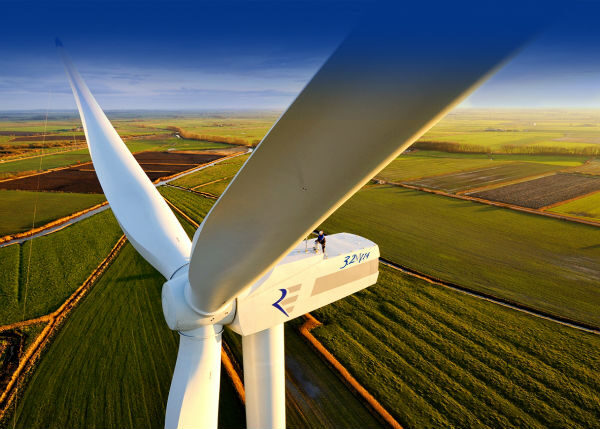
Best April Fool’s Day Pranks 2014
April 1, 2014
DDoS Attack Map Shows Realtime Cyber-attacks
April 2, 2014Uh oh, these data centers’ parents are NOT going to be happy…
Data centers are some of the biggest energy hogs, no doubt. Renewable, sustainable and green energies have been coming to the forefront of data center power grids recently, but not a lot of operators and owners are on board for using green energies, and that’s not okay according to environmental activists. That’s why Greenpeace recently gave a big fat ‘F’ on the data center energy grading scale to facilities run by Twitter and Amazon.
Data center energy
Greenpeace has gone over the power sources for data centers run by Amazon and gave them a bunch of F’s in renewable energy, environmental advocacy and siting policy. The lone bright spot was a D in energy efficiency. I mean, that’s a passing grade, right? It seems as though Greenpeace has given F’s to others like Facebook, Google and Apple in the past, but most companies/operators have taken the steps to become more green and energy-conscious. According to the Greenpeace report, Amazon has been receiving bad marks for about 3 years, and doesn’t really seem to care. Seriously—Greenpeace is all, “Your data centers aren’t green enough!” and Amazon is like, “Yeah, but this cold hard cash is pretty green.” Amazon did release a comment, criticizing Greenpeace’s reporting, saying that it operates data centers across the US that provide 100% carbon-free power. So basically, their response was one giant “Nuh uh!”
Twitter was another of Greenpeace’s green-energy failures, but was a little less harsh in their critiques given that Twitter doesn’t have their own facilities, opting to lease data center space. However, Greenpeace was still unhappy with their practices–because nobody can ever be happy–about managing their energy supply chain and getting better energy efficiency.
Energy in data centers is a big time issue, so moving towards more renewable, sustainable and green energies to power the facilities can only be good in the long run. Upfront costs can be a big issue for some operators, but in the end, moving towards sustainable energies can lessen their environmental impact as well as cut energy costs. Amazon sure does have enough cash to make the transition to a greener source of energy, but I guess you can only lead a horse to water, as they say.
[Wired]
